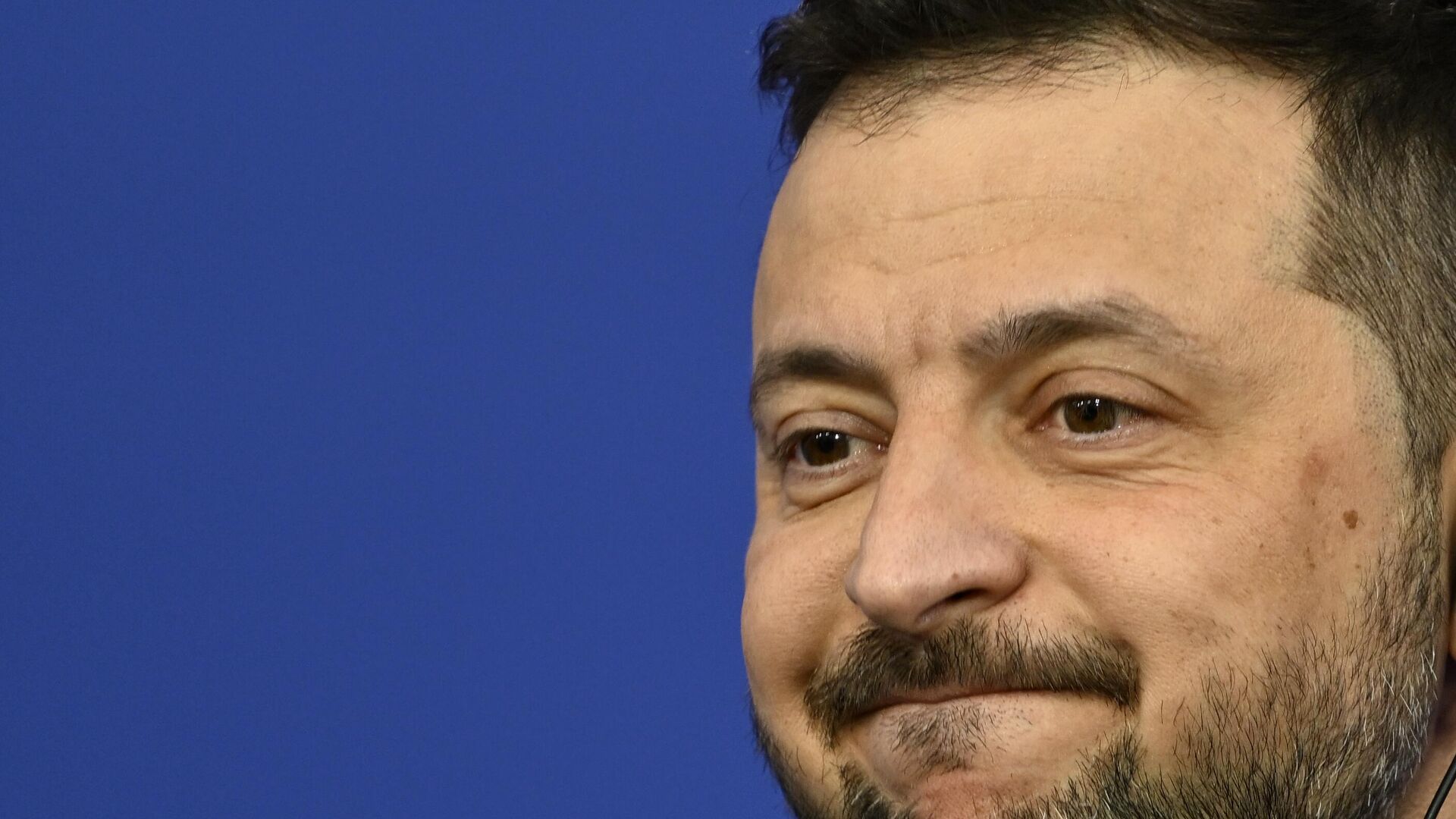https://sputnikglobe.com/20241114/zelensky-reportedly-prioritizes-security-over-territory-why-russia-will-still-have-the-last-word-1120888518.html
Zelensky Reportedly ‘Prioritizes Security Over Territory’: Why Russia Will Still Have the Last Word
Zelensky Reportedly ‘Prioritizes Security Over Territory’: Why Russia Will Still Have the Last Word
Sputnik International
Kiev has reportedly stepped back from the terms of the maximalist ‘victory plan’ outlined by Volodymyr Zelensky in mid-October, and is now reportedly prepared to discuss the prioritization of security over territory. Analysts tell Sputnik what’s changed.
2024-11-14T17:24+0000
2024-11-14T17:24+0000
2024-11-15T08:54+0000
analysis
volodymyr zelensky
alexander mikhailov
donald trump
ukraine
russia
moscow
nato
wall street journal
https://cdn1.img.sputnikglobe.com/img/07e8/0b/0e/1120885313_0:68:2816:1652_1920x0_80_0_0_be4876cca6532eef925e711339d7ae3d.jpg
Ukrainian officials hinted to US media this week that territory has become secondary to security guarantees in Kiev’s calculations on ending or at least freezing the security crisis with Russia.“Talks should be based on guarantees. For Ukraine, nothing is more important,” another official said, hinting that Ukraine might recognize its territorial losses without formally renouncing its claims.The apparent rollback from hardline demands runs counter to Volodymyr Zelensky’s “victory plan,” outlined less than a month ago, which demanded for a formal invitation for Ukraine from NATO, the lifting of restrictions on strikes deep into Russia, and firm refusal to accept losses in territory or “sovereignty.”Shortly following Donald Trump’s election last week, the Wall Street Journal floated a possible ‘Trump peace plan’ on the freezing of the Ukrainian conflict, including the creation of a demilitarized zone, and the putting off of NATO membership prospects for two decades, in exchange for continued US arms support, and the possibility of ‘peacekeepers’ from European countries being deployed in the rump Ukraine.'Security Guarantees' as Code for NATO Membership?“Zelensky is asking for security guarantees which in their scope correspond to the guarantees NATO provides its members,” military analyst Alexander Mikhailov told Sputnik, commenting on the NYT story.As far as concrete guarantees are concerned, reports of “peacekeepers” from NATO countries stationed in Ukraine would be a major no-go for Moscow, the observer stressed, since NATO “is a military bloc,” and one that “doesn’t bring peace anywhere.”Demilitarization ImperativeRegarding the creation of some sort of international monitoring to oversee Ukraine’s demilitarization, this issue would be a must-pass priority for Russia, Mikhailov expects, pointing out that for Moscow, Kiev’s demilitarization, agreed under the March 2022 tentative peace deal, is second only to the liberation of the Donbass in terms of its strategic importance.Such measures would ensure the security of both the West and Russia, Mikhailov stressed, “especially with Zelensky, in his frenzy, simply starting to blackmail Europe with threats to restore Ukraine’s nuclear weapons capability...”“That is, no matter what Zelensky may think, there is the situation on the battlefield, and he’s not the only one analyzing the situation on the map,” Mikhailov stressed.“Zelensky will in any case have to recognize his defeat. It’s just one can simply admit defeat, or pretend that there was no defeat. And his so-called ‘formula for peace’, which he has so persistently presented to the West, was not implemented thanks to the political impotence of the West itself,” the observer noted.In the two-and-a-half years since the breakdown of Russia-Ukraine peace talks in Istanbul, the situation at the front has changed, and these “new realities” will undoubtedly have be accounted for in any new agreement, Mikhailov believes. Furthermore, Moscow is unlikely to sign any agreement without the entire territory of its four new regions (Donetsk, Lugansk, Kherson and Zaporozhye) being liberated, according to the observer.Ultimately, Mikhailov says “absolutely everything will depend” on the Trump administration’s next moves, given that Moscow is wary about any Minsk-style ceasefire agreement that could escalate into a new round of fighting at any moment.On the other hand, if the territories are rejected de facto, if not de jure, that’s another story, the observer says, citing the Georgian scenario, which gave rise to a lasting ceasefire agreement, if not totally resolved the Caucasus crisis, in 2008.Pressure on Zelensky So US Can Focus on Other Theaters?“I believe the Trump administration will urge Ukraine to sacrifice some land for peace,” Eisenhower Media Network senior fellow William Astore told Sputnik, when asked to comment on the Times report on Kiev's shift in focus.“Trump is really intent on taking on the Chinese. And I think the focus of the Trump administration will be elsewhere. And that's also an advantage to the Russians that they can get more favorable deal to them ultimately,” CovertAction Magazine managing editor Jeremy Kuzmarov told Sputnik.With that said, “the extent to which Trump is willing to accept” Russian gains remains to be seen, according to the observer.“Don't forget, Trump has a lot of supporters in the defense industry, Wall Street, who profit off an ongoing war. So, you know, they may just want to drag this out, give the impression that he's moving forward on peace talks, but not really offering Russia a deal that makes sense for Russia and that recognizes what Russia has achieved on the battlefield,” the observer summed up.
https://sputnikglobe.com/20241110/former-nato-commander-sees-trump-pushing-ukraine-to-recognize-russias-new-regions-1120837061.html
https://sputnikglobe.com/20241112/raw-materials-and-troop-deployments-how-zelensky-tries-to-woo-trump-with-revised-victory-plan-1120863511.html
https://sputnikglobe.com/20241114/ukraines-bluster-about-making-nuclear-bomb-if-trump-scraps-us-aid-is-desperate-blackmail---analyst-1120883976.html
https://sputnikglobe.com/20230808/2008-south-ossetia-crisis-first-prelude-to-nato-russia-proxy-war-1112464203.html
https://sputnikglobe.com/20241114/cia-veteran-trumps-foreign-policy-team-may-double-down-on-stupid-in-ukraine-middle-east-china-1120881081.html
https://sputnikglobe.com/20241112/eu-now-has-two-choices-new-arms-race-or-mend-fences-with-russia--swedish-military-veteran-1120867792.html
ukraine
russia
moscow
Sputnik International
feedback@sputniknews.com
+74956456601
MIA „Rossiya Segodnya“
2024
News
en_EN
Sputnik International
feedback@sputniknews.com
+74956456601
MIA „Rossiya Segodnya“
Sputnik International
feedback@sputniknews.com
+74956456601
MIA „Rossiya Segodnya“
is zelensky ready to give up territory, can trump force zelensky to give up
is zelensky ready to give up territory, can trump force zelensky to give up
Zelensky Reportedly ‘Prioritizes Security Over Territory’: Why Russia Will Still Have the Last Word
17:24 GMT 14.11.2024 (Updated: 08:54 GMT 15.11.2024) Kiev has reportedly stepped back from the terms of the maximalist ‘victory plan’ outlined by Volodymyr Zelensky in mid-October, and is now reportedly prepared to discuss the prioritization of security over territory. Analysts tell Sputnik what’s changed.
Ukrainian officials hinted to US media this week that territory has become secondary to security guarantees in Kiev’s calculations on ending or at least freezing the security crisis with Russia.
“The territorial question is extremely important, but it’s still the second question. The first question is security guarantees,” an anonymous senior Ukrainian official
told the New York Times.
“Talks should be based on guarantees. For Ukraine, nothing is more important,” another official said, hinting that Ukraine might recognize its territorial losses without formally renouncing its claims.
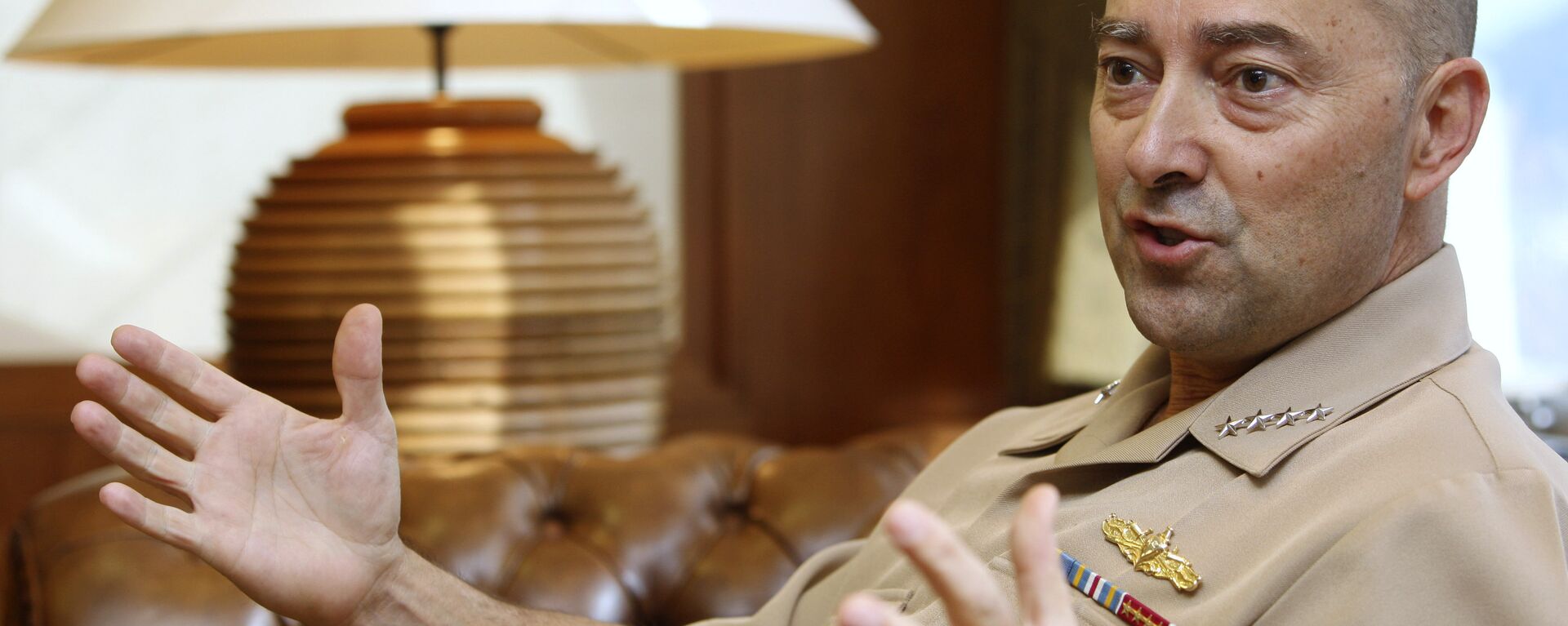
10 November 2024, 01:38 GMT
The apparent rollback from hardline demands runs counter to Volodymyr Zelensky’s
“victory plan,” outlined less than a month ago, which demanded for a formal invitation for Ukraine from NATO, the lifting of restrictions on strikes deep into Russia, and firm refusal to accept losses in territory or “sovereignty.”
Shortly following Donald Trump’s election last week, the Wall Street Journal
floated a possible ‘Trump peace plan’ on the freezing of the Ukrainian conflict, including the creation of a demilitarized zone, and the putting off of NATO membership prospects for two decades, in exchange for continued US arms support, and the possibility of ‘peacekeepers’ from European countries being deployed in the rump Ukraine.
'Security Guarantees' as Code for NATO Membership?
“Zelensky is asking for security guarantees which in their scope correspond to the guarantees NATO provides its members,” military analyst Alexander Mikhailov told Sputnik, commenting on the NYT story.
“In essence, Zelensky is asking to join NATO…but legally it would be necessary to provide the same assurances as those provided to NATO member states – something the alliance cannot do, because Ukraine has disputed territories, and, moreover, is involved in a conflict with a nuclear power,” Mikhailov said.
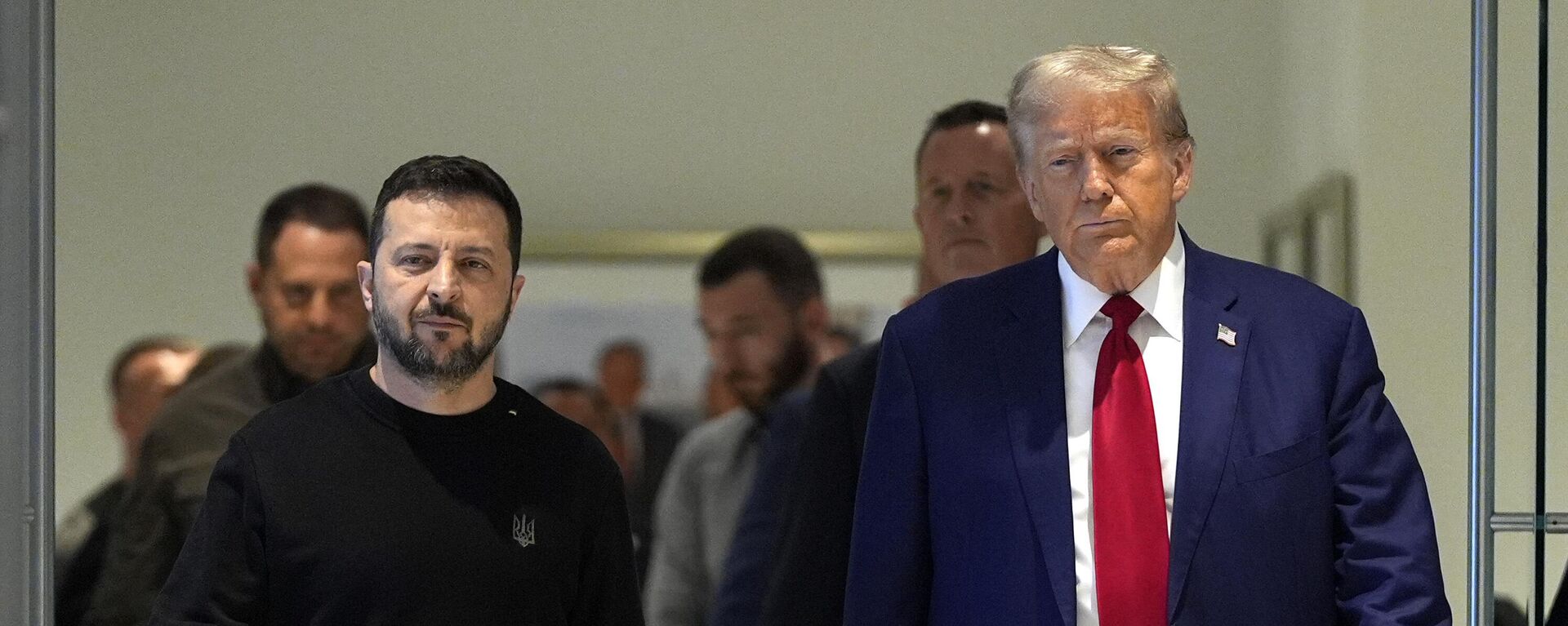
12 November 2024, 10:37 GMT
As far as concrete guarantees are concerned, reports of “peacekeepers” from NATO countries stationed in Ukraine would be a major no-go for Moscow, the observer stressed, since NATO “is a military bloc,” and one that “doesn’t bring peace anywhere.”
Demilitarization Imperative
Regarding the creation of some sort of international monitoring to oversee Ukraine’s demilitarization, this issue would be a must-pass priority for Russia, Mikhailov expects, pointing out that for Moscow, Kiev’s demilitarization, agreed under the March 2022 tentative peace deal, is second only to the liberation of the Donbass in terms of its strategic importance.
Such measures would ensure the security of both the West and Russia, Mikhailov stressed, “especially with Zelensky, in his frenzy, simply starting to blackmail Europe with threats to restore Ukraine’s nuclear weapons capability...”
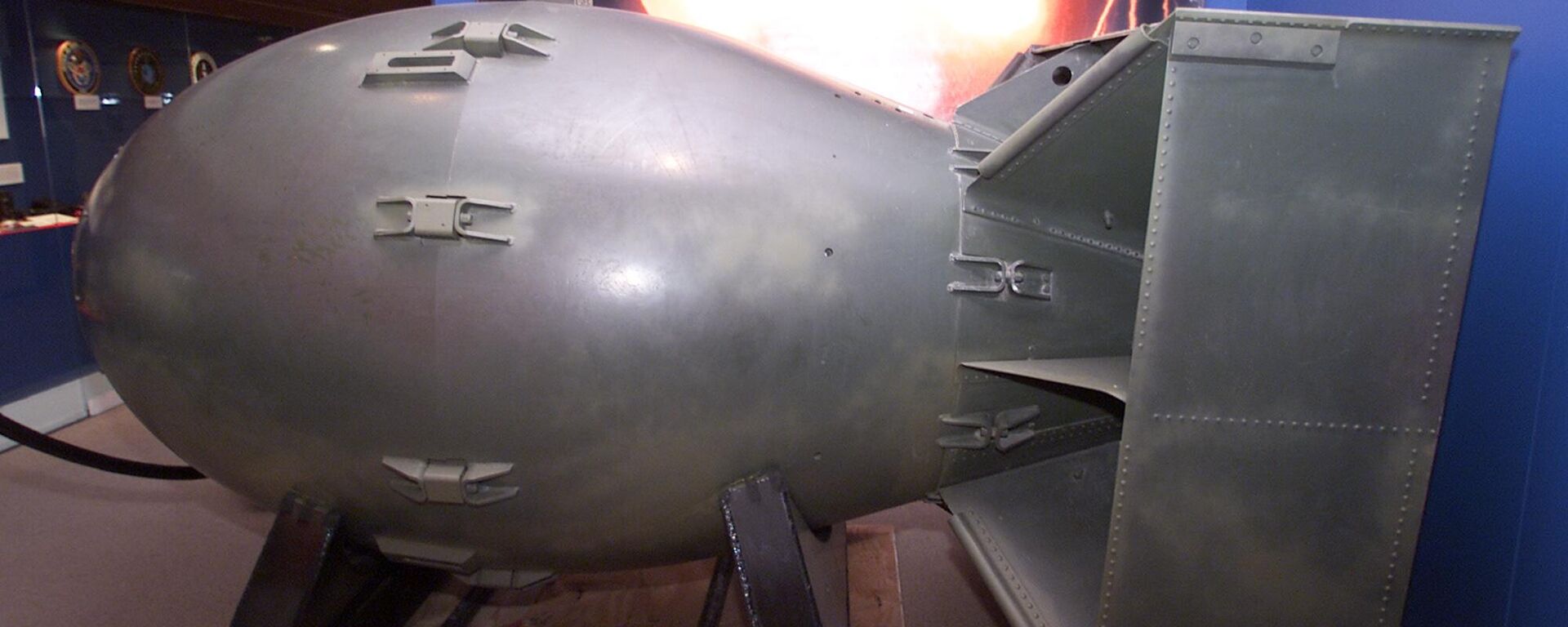
14 November 2024, 13:57 GMT
“As far as the 1991 borders are concerned,” recognizing their loss to Russia simply constitutes “objective reality,” Mikhailov said.
“That is, no matter what Zelensky may think, there is the situation on the battlefield, and he’s not the only one analyzing the situation on the map,” Mikhailov stressed.
“Zelensky will in any case have to recognize his defeat. It’s just one can simply admit defeat, or pretend that there was no defeat. And his so-called ‘formula for peace’, which he has so persistently presented to the West, was not implemented thanks to the political impotence of the West itself,” the observer noted.
In the two-and-a-half years since the breakdown of Russia-Ukraine peace talks in Istanbul, the situation at the front has changed, and these “new realities” will undoubtedly have be accounted for in any new agreement, Mikhailov believes. Furthermore, Moscow is unlikely to sign any agreement without the entire territory of its four new regions (Donetsk, Lugansk, Kherson and Zaporozhye) being liberated, according to the observer.
Ultimately, Mikhailov says “absolutely everything will depend” on the Trump administration’s next moves, given that Moscow is wary about any Minsk-style ceasefire agreement that could escalate into a new round of fighting at any moment.
For his part, political and military analyst and publicist Sergey Poletaev says that that in practice, “if any Ukrainian politician says ‘that’s it, we reject these territories’, he will be committing political suicide.”
On the other hand, if the territories are rejected de facto, if not de jure, that’s another story, the observer says, citing the Georgian scenario, which gave rise to a lasting ceasefire agreement, if not totally resolved the Caucasus crisis, in 2008.
Pressure on Zelensky So US Can Focus on Other Theaters?
“I believe the Trump administration will urge Ukraine to sacrifice some land for peace,” Eisenhower Media Network senior fellow William Astore told Sputnik, when asked to comment on the Times report on Kiev's shift in focus.
“If the U.S. cuts aid to Ukraine, Ukraine will have little choice but to negotiate. Borders are labile and malleable things; it's the preciousness of human life that should be held sacred, not borders,” Astore said, highlighting the unique leverage Washington has with Kiev when it comes to ending, or at least freezing, the present crisis.
“Trump is really intent on taking on the Chinese. And I think the focus of the Trump administration will be elsewhere. And that's also an advantage to the Russians that they can get more favorable deal to them ultimately,” CovertAction Magazine managing editor Jeremy Kuzmarov told Sputnik.
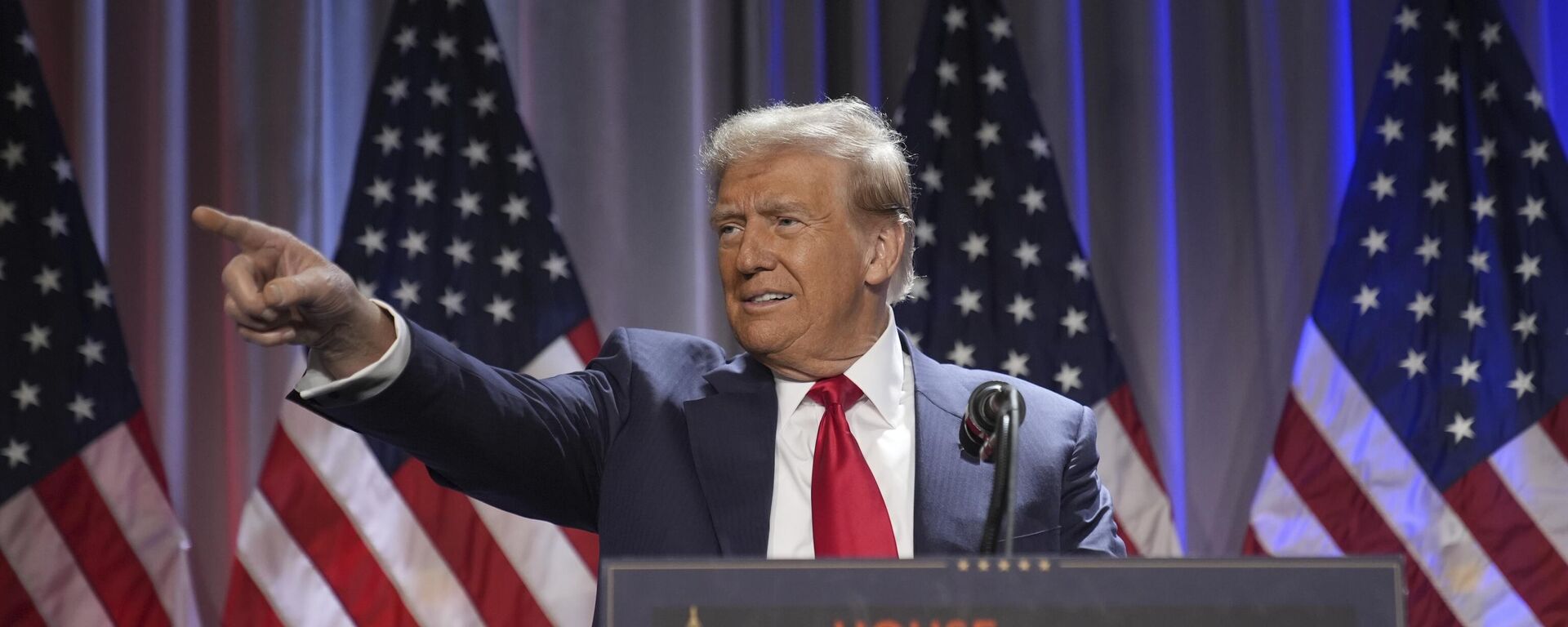
14 November 2024, 07:06 GMT
With that said, “the extent to which Trump is willing to accept” Russian gains remains to be seen, according to the observer.
“You know, he says he wants to make a deal, but at the same time, he's not necessarily going to be pushing very sympathetic terms for the Russians,” Kuzmarov said, recalling the Trump White House’s hostility toward Moscow in the Republican’s first term, from pulling out of the INF Treaty to sending lethal weapons to Ukraine in the first place.
“Don't forget, Trump has a lot of supporters in the defense industry, Wall Street, who profit off an ongoing war. So, you know, they may just want to drag this out, give the impression that he's moving forward on peace talks, but not really offering Russia a deal that makes sense for Russia and that recognizes what Russia has achieved on the battlefield,” the observer summed up.
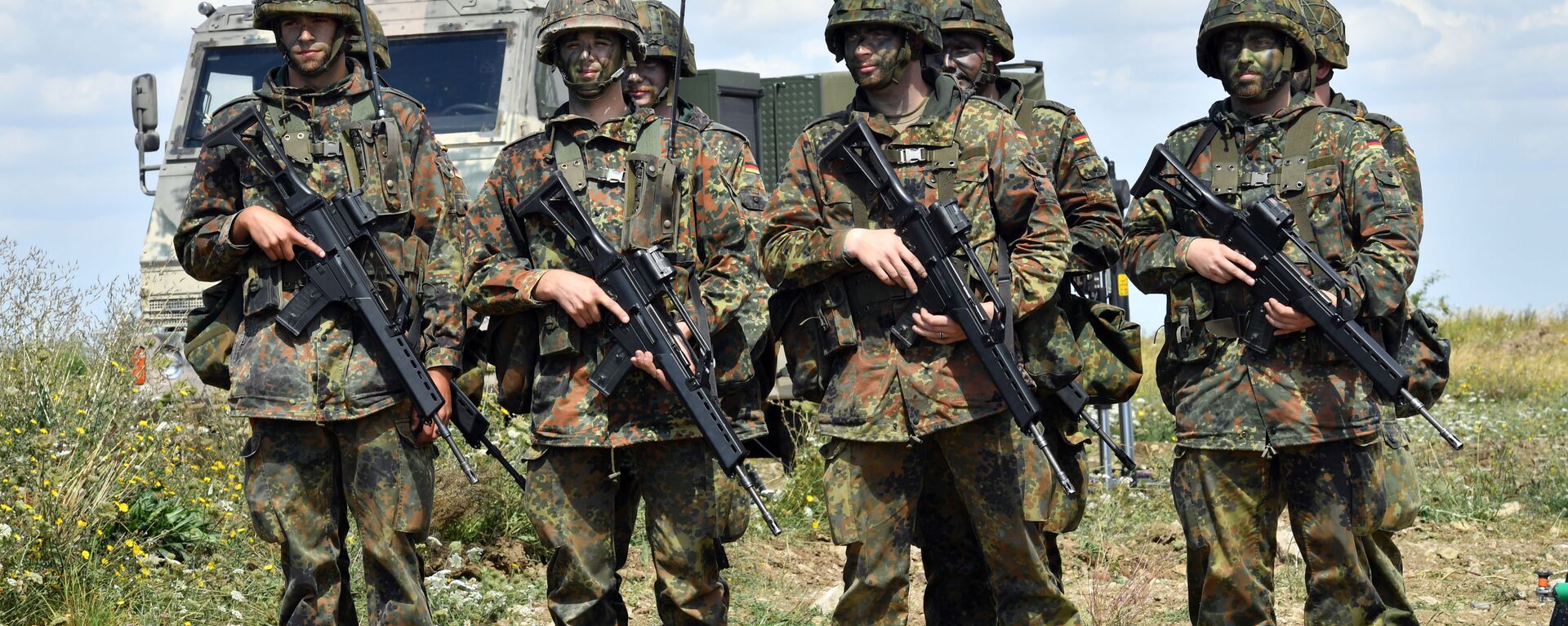
12 November 2024, 16:34 GMT
